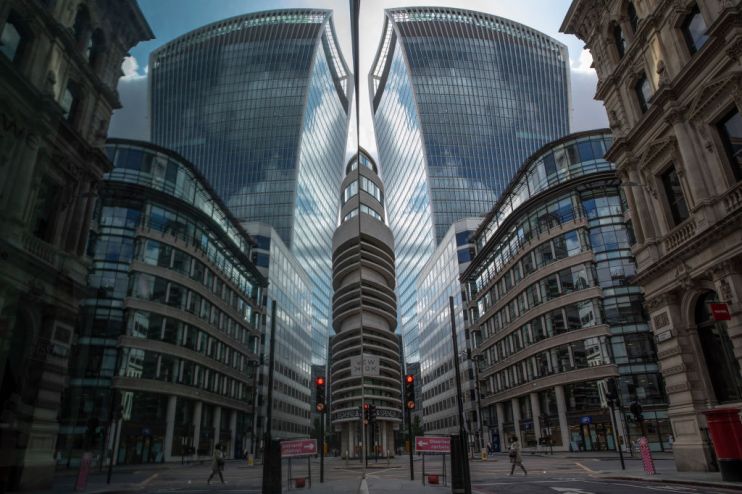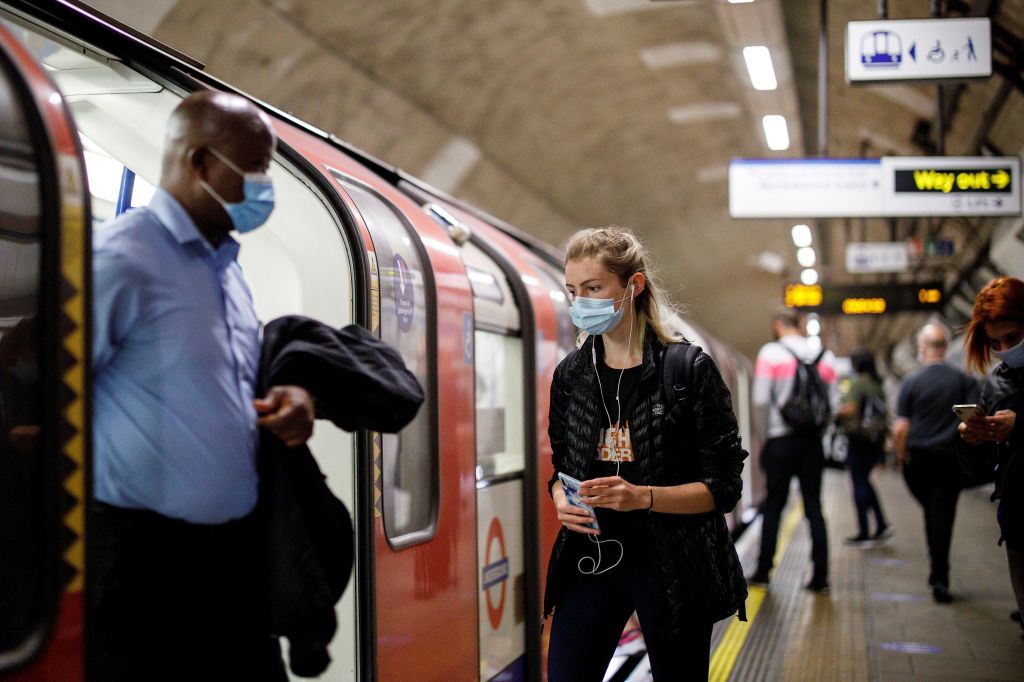Why City PR firm Cicero is getting back to the office

As offices around central London prepare to welcome some staff back to work, the need for employers to instil confidence in their coronavirus safety measures is paramount.
At City lobbyist firm Cicero, over 80 per cent of employees have already been back to the office at some point since lockdown restrictions began to ease in June.
Based in the Havas Media Village at King’s Cross, Cicero has put in place a number of measures to help staff return with confidence they will be safe.
As well as the now commonplace availability of masks and hand sanitiser, the company has put in place automatic temperature scans on entering the building.
It has also introduced clearly labelled one-way systems and a QR code system that requires all employees in the office on any given day to scan the one on their desk.
“The QR code does three things,” Cicero managing director, Iain Anderson, explains to City A.M.
“One, it’s a secondary confirmation of who is in the building [after registering to come in]. Secondly, it means at the end of each day the desk is given a deep clean. And thirdly, if there was a Covid incident, you have a really, really robust track and trace system in place.”
The City View: Iain Anderson on the Square Mile’s Covid shockwave
Employees must also take an online test before first returning to the office to prove they understand the new measures.
Currently Cicero’s building is only able to accommodate 30 per cent of its workforce at one time. That has meant different teams come in on different days to reduce the risk of a company-wide issue.
Cicero has arranged for one team to come in on Monday and Tuesday, another on Tuesday and Wednesday, and so on throughout the week. The rest of the week staff still work remotely.
The benefits of getting back to work
But why the urgency to get so many employees back to the office? Apart from Zoom-induced frustration, Anderson points to a number of benefits.
“We’ve seen basically two or three key reasons,” he says. “There’s the impact of people hunched over a kitchen table – and sometimes hunched over a kitchen table with other people – so the ergonomics of being an office. But also, from a collaboration perspective.
“We’re not talking about people being in the office five days a week, but it’s being in the office enough to collaborate.
“The other thing is learning. People have been missing out on listening across the office, listening to colleagues, running into people: it’s much harder to do.”
Anderson insists that Cicero’s employees have been happy to return and even surprised at how thoroughly prepared the office has been to deal with Covid-19.
Staff fear commute more than office

However, staff still see the commute to and from work as the biggest risk.
“If you watch news bulletins, there’s a lot of concern about track and trace, the data, the messaging on the tube or public transport. That’s one of the frustrations for many employers.
“Increasingly your journey is essential because it’s not about presenteeism at all, it’s about being able to properly collaborate. The word that kept coming across was confidence, giving people confidence and letting them know your system is robust.”
For other employers looking to increase staff presence in the office, Anderson’s message is simple: “If you build confidence in your Covid-security systems, people will have confidence in you. If you don’t build confidence in them, you’ll find it much harder.”